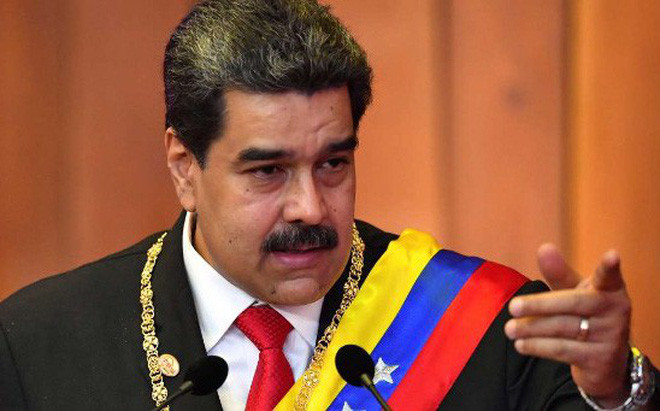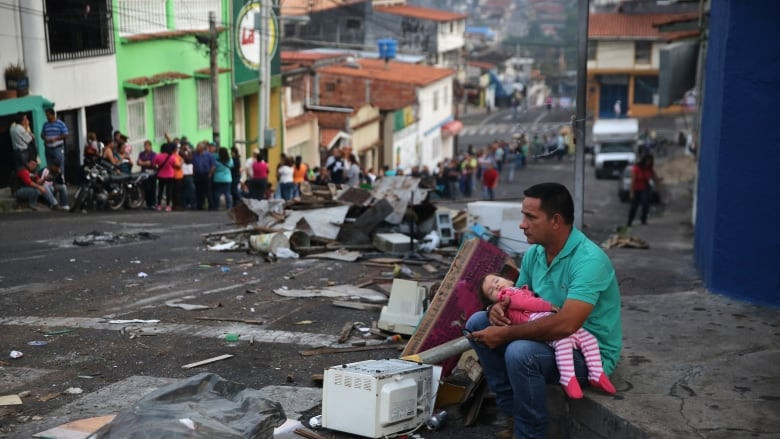Challenges besieging Venezuelan President Nicolas Maduro
(Baonghean.vn) - Nearly half a month since the Venezuelan political crisis broke out, a series of events are developing rapidly and do not seem to be going in a favorable direction for current President Nicolas Maduro.
From growing support for self-proclaimed president Juan Guaido, pressure from tightening US sanctions to the "turning away" of some military generals, President Maduro is beset by challenges to his future in power.
Inside push outside squeeze
That is the situation that Venezuelan President Nicolas Maduro's administration is facing in the context of the political crisis in this South American country that has not found a way out. Domestically, since opposition leader Juan Guaido declared himself "interim president" on January 23, 2019, adverse developments have continuously occurred, directly challenging President Maduro's power and making the crisis that has lasted for many years here more tense.
Currently, both President Maduro's administration and opposition leader Juan Guaido are trying to mobilize the military and people to stand on their side in the fierce power struggle.
In a recent move, Mr. Guaido said he did not rule out the possibility of allowing the US to intervene to force President Maduro to give up power and alleviate the humanitarian crisis. This is considered a worst-case scenario that would not only not resolve the current crisis but would also "add fuel to the fire."
 |
| President Nicolas Maduro has rejected the proposal for early elections. Photo: Getty |
However, up to now, Mr. Maduro still receives loyal support from the Venezuelan armed forces. Venezuelan soldiers declared their readiness to repel any foreign-led aggression against their country.
But it is difficult to ensure the loyalty of the military when more and more people “change their minds”. Most recently, an army colonel and now a military doctor abandoned his allegiance to President Maduro, instead turning to support the opposition leader, “self-proclaimed president” Juan Guaido. A week earlier, Air Force General Francisco Yanez made a similar move.
According to some international sources, the Venezuelan army has only 123,000 soldiers, including reservists, out of a total population of 31 million, but has up to 2,000 generals. But the generals not only hold power in the army but also hold positions in the government.
Currently, of Venezuela's 23 provinces, 11 are ruled by generals or former military generals. Of the 30 ministries, 11 are also generals. Therefore, the support of military generals is extremely important for President Maduro to maintain power. But clearly, their loyalty can be affected by external influences. In a statement recently posted on his personal Twitter page, White House adviser John Bolton said that the US is considering lifting sanctions on senior Venezuelan military officials if they recognize the government of self-proclaimed interim President Juan Guaido. This can be seen as overall pressure from the US to "cut off" any support for the government of President Nicolas Maduro.
Previously, the administration of US President Donald Trump dealt the strongest blow ever to the Maduro government by imposing new sanctions on the Venezuelan oil company PDVSA. The sanctions will prevent PDVSA from exporting crude oil from Venezuela to the US, thereby reducing the revenue of the South American country. The US also allowed Mr. Guaido to take control of Venezuela's assets in US banks, including the Federal Reserve Bank of New York... The Maduro government in this situation is like being "tightened" by pincers from many sides.
The solution is left open.
Faced with increasingly tense developments in Venezuela, European and Latin American leaders met in Uruguay's capital Montevideo this week to discuss solutions to the current crisis, urging countries to stay away from direct involvement in the South American country.
As a result, most countries agreed on the “Montevideo mechanism” – a four-step plan to promote dialogue between the Venezuelan government and opposition groups to find a solution to the current political crisis. The most important proposal in this plan is that Venezuela should hold a new presidential election. However, President Nicolas Maduro has rejected this proposal.
In the context that all parties have not found a solution to the Venezuela crisis, the US and Russia recently submitted to the United Nations Security Council two completely opposite draft resolutions on the situation in Venezuela. The US draft resolution clearly stated full support for the country's National Assembly as the only democratic body in Venezuela, and called for early elections in Venezuela.
Meanwhile, the Russian draft also calls for a “peaceful” solution to the deadlock in Venezuela, “supporting all initiatives aimed at achieving a political solution among Venezuelans to the current situation through a genuine and comprehensive national dialogue process.”
The draft resolution by Russia and the United States - two permanent members of the United Nations Security Council - shows the deep division of the international community regarding the crisis in this South American country. In a certain perspective, this division will partly hinder the intentions of a force that wants to completely control the situation.
 |
| Life for Venezuelans is getting harder and harder. Getty Images |
According to observers, any international pressure will be counterproductive because Venezuela is a sovereign country. There will be no perfect solution to the crisis here without national dialogue and reconciliation within the framework of the country's constitution and laws.
President Maduro has said he is willing to meet with his opponents, but “interim president” Guaido has rejected this possibility and declared it a “fake dialogue”. Some countries support the negotiation scenario in Venezuela. The European Union considers President Maduro’s government “illegitimate”, but has not yet recognized Mr. Guaido as the “legitimate president” of Venezuela.
Mexico and Uruguay also support a negotiated solution in Venezuela. The best outcome, Shifter said, is “a prolonged negotiation between a more unified opposition and a defense government.”

